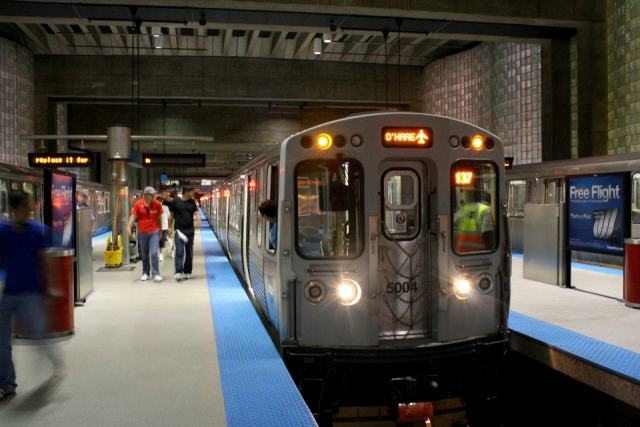Expect Delays: RTA Talks Break Down As CTA Dukes It Out With Metra, Pace, Over Transit Funds
By Kim Bellware in News on Oct 1, 2012 6:30PM

Photo via Chicago Transit Authority's Facebook Page.Pace and Metra are fighting over a share of the Regional Transit Authority's discretionary funds.
Last Friday, the 16-member board met to resolve the dispute, but as The Tribune reports, "a proposed deal went awry at the last minute," with the meeting adjuring shortly after it started.
The discretionary funds being fought tally up to about $6 million (the RTA's total discretionary funds are $185 million), with the CTA historically getting the lion's share — 98.3 percent in 2012 — of the funds.
The RTA blew through its first deadline on Sept. 15, where the agency was supposed to finalize how the funds would be distributed. Instead, Chicago members of the board blocked the measure that would have reduced the CTA's 2013 share to 95.2 percent, a 2.9 percent decrease from this year.
The suburban Daily Herald, meanwhile, notes that the money in question is "indicative of weightier turf wars to come as the city/suburbs divide re-emerges." That much is evident in the way the CTA is sized up by DuPage County Chairman Dan Cronin, who the Daily Herald quotes saying:
“It’s pretty clear there’s monumental financial problems at the CTA. I’m sorry for them, but I didn’t create them. The suburbs didn’t create them. They have to be held accountable and make tough decisions. They’re trying to overreach and grab more than they’re entitled to.”
Meanwhile, CTA President Forrest Claypool told the Herald via email:
“The CTA is merely seeking to maintain its existing level of funding. While we understand other transit agencies would like additional resources, those dollars should not come by reducing CTA’s historic share of discretionary funding.”
Cronin goes on to tell the Herald, “the money is collected from all the taxpayers in the region, the majority of whom reside in the suburbs. Why should we subsidize the CTA more than we already are? They seem to care little for their neighbors in the suburbs.”
Most funding for the RTA comes from fares and sales tax, with the Herald noting the formula for divvying up the sales tax portion (not discretionary funds) is 56 percent to the CTA, 32 percent to Metra and 12 percent to Pace.
For those curious about the RTA's board breakdown, the 16-member group comprises members from within the six-county region:
- 5 appointed by the Mayor of Chicago
- 4 appointed by suburban members of the Cook County Board
- 1 appointed by the President of the Cook Country Board (from Suburban Cook County)
- 1 director each (for a total of 5) from DuPage, Kane, Lake, McHenry and Will counties
- 1 member who is is elected by at least 11 of the 15 appointed members
Update: Pace spokesman Patrick Wilmot reached out to Chicagoist with the following comment:
"Pace is not involved in the battle for funding. Based on the RTA staff proposals we’ve seen to date, we receive enough of the discretionary funds in question to balance our 2013 budget. In reference to your opening statement, you are correct that we were on great terms with the CTA last week, but we remain on great terms with them this week, too."